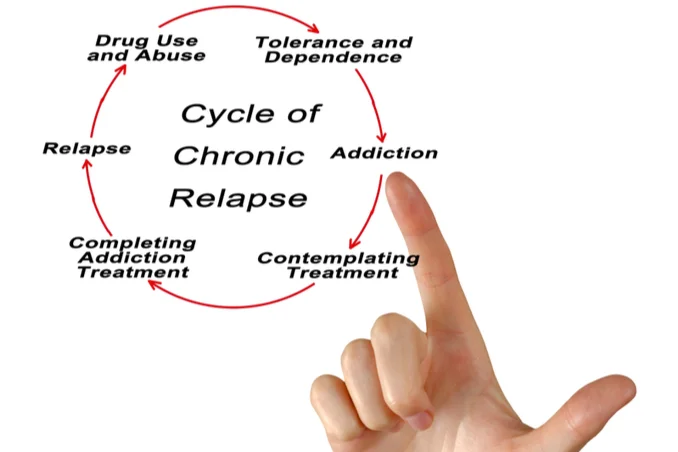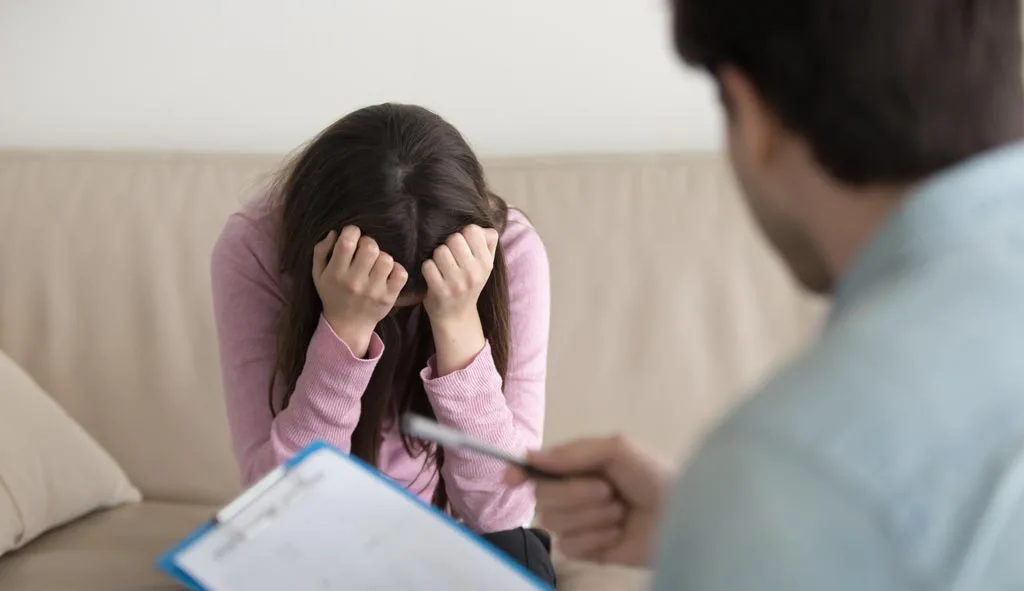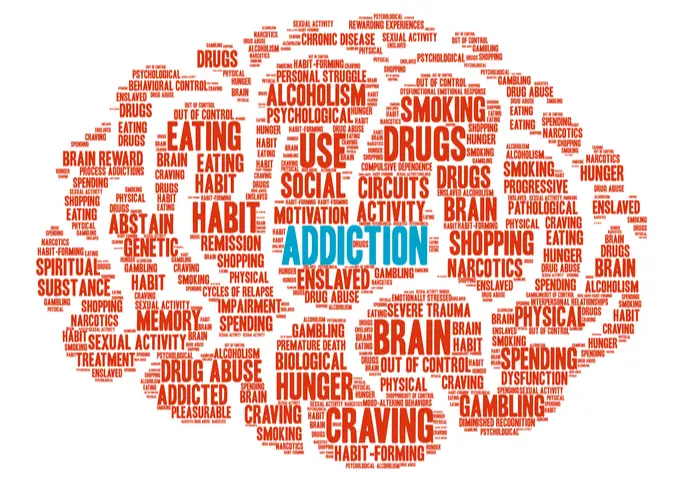What Is Chronic Relapse?
Table of Contents
- What Is Chronic Relapse?
- Are Chronic Relapsers a Rare Breed?
- What are the Signs and Symptoms of Chronic Relapse?
- Finding Long Term Treatment and Long Term Recovery
- Chronic Relapse: Emotional vs Mental vs Physical Relapses
- What Is a Chronic Relapse Treatment Center?
- Why Do People Relapse Frequently?
- When Chronic Relapse Treatment Leads to Recovery
I’ve entered treatment a dozen times. The first time I went to recovery was when I was in high school and was dealing with a worsening dependence on opiates. Most of the times I went to rehab I didn’t really want to get clean, which is why I ended up going back so many times. I never thought of myself as needing a ‘chronic relapse treatment’ plan, or even really considered it.
But when I finally reached out to Find Addiction Rehabs after reading one of their blogs on fentanyl, they told me about how chronic relapse treatment was an effective means of addressing my situation and helped me find a program that actually prepared me to tackle the addiction that had been a central part of my adult life.
Are Chronic Relapsers a Rare Breed?
Chronic relapse is a scary part of addiction, and it’s more common than you would think. There is a high percentage of addicts who attend treatment on more than one occasion. Because addiction is such a day-by-day situation, it’s easy to relapse. Even when you are feeling at your very best, it doesn’t take much to make you slip back into drug abuse. The cycles of addiction and relapse can repeat themselves over and over.
I’ve been in this situation more times than I can count. I had all the risk factors for chronic relapse. I didn’t have a very firm grasp on my mental and emotional health, and I didn’t have a lot of self-confidence. When I would get clean, it would last a couple of weeks at a time, but I could never sustain it.
There are so many triggers and coping mechanisms that you’ll learn about in recovery, but these alone will not prevent you from using drugs. The mental part of addiction is exhausting and can really bring you to a low point. I’ve been to that low point many times, and I never imagined that I would ever get clean when I was there.
What are the Signs and Symptoms of Chronic Relapse?

Attitude is everything. Your attitude can make or break your recovery. There are certain thoughts or situations that can put you in a tough place. Some signs and symptoms of chronic relapse include glamorizing your past drug use. We all talk about our past addictions, but there is a certain way to frame it without glorifying it or making it seem like it was fun. This mindset can quickly lead you back to drug abuse.
A false sense of control over your addiction can be another symptom. When things are going seemingly well, it’s easy to think that you’ve got your addiction taken care of and you don’t have to worry about it anymore. Sobriety is a constant process and there is no end to it. If you start to think you’ve defeated your addiction, it can very quickly lead to relapse.
There is something powerful when we recognize addiction as a chronic disease. Once you come to terms with the fact that your addiction will always be there right under the surface, you will put yourself in a better position to succeed in sobriety. I’ve met people who were sober for decades and a single moment of letting their guard down resulted in them relapsing.
Finding Long Term Treatment and Long Term Recovery
Crafting a chronic relapse prevention plan is the only way to deal with this endless cycle. When I called Find Addiction Rehabs and told them my history, I made it clear that I had a high risk of relapsing. They found a top facility (and even gave me choices across the country) that crafted a program around my needs and set me up to be as successful as possible. They instilled in me the importance of long-term treatment and long-term recovery.
I knew I had to make my recovery the most important thing in my life. It had to take priority over everything else, even some of my personal relationships. Luckily for me, I have a very supportive family and they don’t get offended if I seem off and sometimes selfish. They’ve seen me on the other side, and they would much prefer me to be alive and a little difficult to deal with than dead or homeless.
I try very hard not to be a difficult person to deal with, but I do have my off days. It’s important for me if I’m having a bad day to reflect and take some time for myself. I work hard on reminding myself that these feelings will pass and that tomorrow is a new day. This helps me keep myself in check.
You can recognize quickly when one of your peers in recovery is struggling as well. It’s important to give them space, but also give them words of encouragement. People are going to struggle. No one in recovery is at the top of their game all the time. It’s ok. People must be reminded that it is ok. We all work for those moments of joy that do eventually come.
Chronic Relapse: Emotional vs Mental vs Physical Relapses
The stages of chronic relapse are a constant cycle of emotional, mental, and physical symptoms. The combination of all this is very difficult to endure, and it seems to happen all at once. First, your confidence begins to waver. You get cravings. You feel like you could use drugs just once and then get back on the wagon. You wrestle with your own mind.
Once you begin to get the cravings, they can be very difficult to combat. Depending on your drug of choice, the symptoms can be different. There is a lot of statistical data on relapse rates by substance type, and they paint a pretty interesting picture. For example, any substance that you become physically addicted to will be more difficult to get off.
For me, being physically addicted to opiates was a real hard one to overcome. Your brain changes based on your addiction, and after a while, your brain and body cannot function normally without the drug. It definitely helped me to keep a good head on my shoulders and listen to the professionals.
Lasting recovery with a chronic relapse treatment center is possible but it will take a lot of soul-searching and mental toughness. Two important additions to the traditional levels of addiction treatment: sober support systems and aftercare planning are vital to this process. Sobriety is an individual effort, but you do need a lot of help and support along the way.
What Is a Chronic Relapse Treatment Center?

Who benefits from chronic relapse treatment? If you’re like me, and you are sick and tired of being sick and tired, a treatment center that focuses on chronic relapse should be your number one option. Not all treatment options look the same for everybody. It can take a while to figure out what works best for you, but once you figure it out it makes all the work worth it. It’s like unlocking a puzzle box.
Long-term programs in structured settings can set you up with a positive mental attitude and give you a good place to start. It’s always going to be difficult to avoid the triggers, but that level of difficulty will become less and less the longer you are in recovery. If you continue aftercare programs and talk with other people in recovery you will gain the wisdom you need to keep it all going.
The full continuum of care in treatment that I received was inspiring to me. I didn’t want to let myself down, and I didn’t want to let down all of the people that helped me along the way. I do recognize that relapse is a big part of addiction recovery, but I do my best to avoid it. If I do relapse, it’s ok for me to admit defeat and start back over.
Why Do People Relapse Frequently?

Recovery is thought and it does not have a one hundred percent success rate. That’s what makes people’s success stories that much more valuable. Not everyone who enters recovery will overcome their addiction. It’s sad to look at all the statistics of people who never figure it out, but it’s encouraging when I talk to former addicts who have no interest whatsoever in glorifying their past drug abuse.
The mental part of my addiction has been the hardest, for me anyway. I can deal with the physical cravings. I still have dreams sometimes about getting high, and I wake up thinking that I relapsed. It doesn’t make my day any tougher, but it does remind me that just having a dream about it can give me a trigger.
I have the tools now to deal with those moments, but it doesn’t mean they go away entirely. Your treatment program is everything and it will always guide you in the right direction. Stopping treatment can be a tricky situation. Stopping treatment against medical advice can be deadly and you need to be careful of the decisions that you make.
When Chronic Relapse Treatment Leads to Recovery
When you tell your story to others, it may be the thing that prevents someone from relapsing. I not only talk about my addiction and recovery, but I also talk about all of my relapses too. I talk about where I was mentally when they happened, and what I did about it. I open up and talk about my past as much as possible.
I know that it not only helps me, but it helps my peers, both those in recovery and those searching desperately for something that can help them break the cycles of relapse, once and for all.
Edward lives and works in South Florida and has been a part of its recovery community for many years. With a B.A. in English Literature from the University of Massachusetts, he works to help Find Addiction Rehabs as both a writer and marketer. Edward loves to share his passion for the field through writing about addiction topics, effective treatment for addiction, and behavioral health as a whole. Alongside personal experience, Edward has deep connections to the mental health treatment industry, having worked as a medical office manager for a psychiatric consortium for many years.

